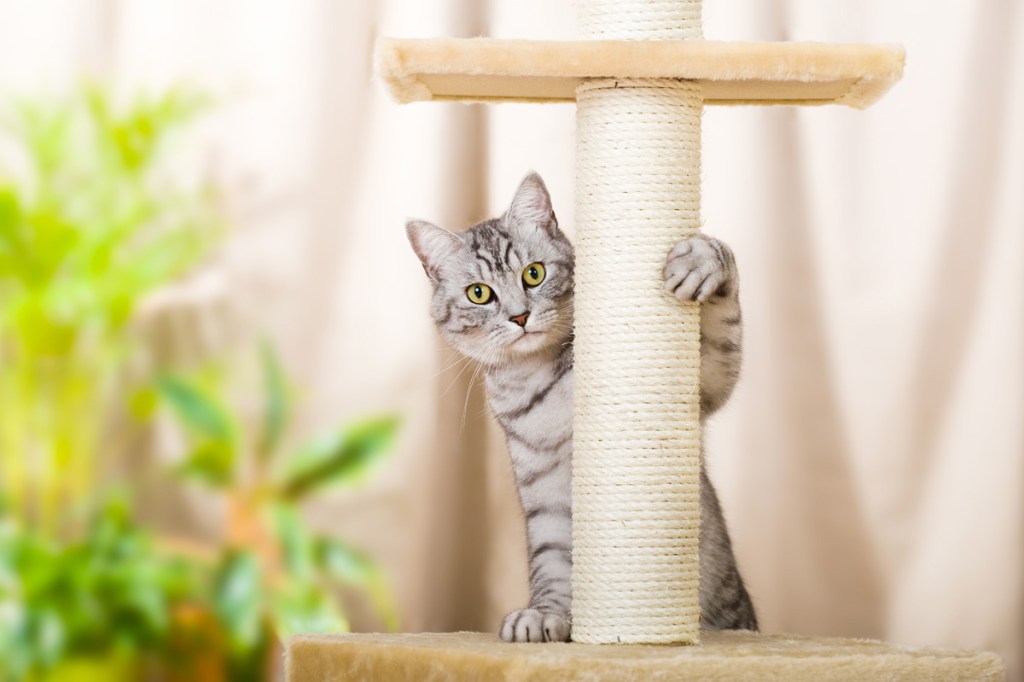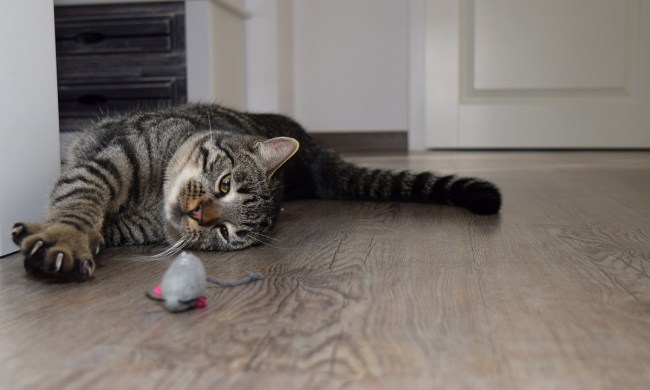You may be entirely devoted to your beloved fur baby, and yet they inevitably get up to no good around the house (sometimes, at least). Our dogs might bark incessantly at the neighbors while our cats instead take their boredom out on your favorite leather chair.
It’s natural to want to know why cats scratch furniture — especially because new research holds a few clues. Instead of tearing out your hair when your feline goes for the La-Z-Boy, think about the reasons their environment could spark this behavior — and how to curb it.
Why do cats scratch furniture?

Recent research published in Frontiers in Veterinary Science reveals some of your kitty’s deepest secrets. Like so many of us, cats often respond to stress by acting out! While in humans, this might translate to snapping at a loved one or staying up all night worrying — cats take their feelings out on the sofa.
Specifically, this scholarly article looked at homes with one mouser only and tried to discern how much they scratched and why. While the authors note the flaws in self-reported data, it still paints a very interesting picture worth noting. “We show that certain factors — such as the presence of children at home, personality traits of cats, and their activity levels — significantly impact the extent of scratching behavior,” said veterinary researcher Yasemin Salgirli Demi̇rbas, from Ankara University in Türkiye.
Where does scratching behavior come from?

In the wild, cats mark their territory by scratching it. Your tiny pal may have scraped trees and logs thousands of years ago to leave behind their scent and to literally leave a mark. In your house, the dining room table will suffice. Of course, they also scratch to trim their claws, stretch, and relieve stress or anxiety.
It’s that last one we’re particularly interested in examining. The latest research shares that cats may act out by scratching in response to their home vibe. As you become more and more upset about the ruined decor, you increase your cat’s stress and the cycle continues.
How to prevent your cat from scratching

There are a few things you can do to keep your fur baby at bay. First, make sure you provide sufficient daily attention without overstimulating your pet. In fact, too much playtime actually leads to more scratching, according to researchers. Next, keep your cat away from your precious midcentury modern by offering up other things to shred to their little heart’s content. We mean scratching posts. When placed in the right areas, this will significantly reduce destructive scratching. Lastly, consider cat pheromone diffusers, which may help calm your beastie.
Truthfully, you’ll probably have to deploy a few techniques to keep the scratching to a minimum (declawing, of course, is not a humane option). “Providing safe hiding places, elevated observation spots, and ample play opportunities can help alleviate stress and engage the cat in more constructive activities,” advises Salgirli Demi̇rbas. Basically, keep your four-legged friend in a chill and happy environment with plenty of approved scratching surfaces and you’ll likely have no issues.




